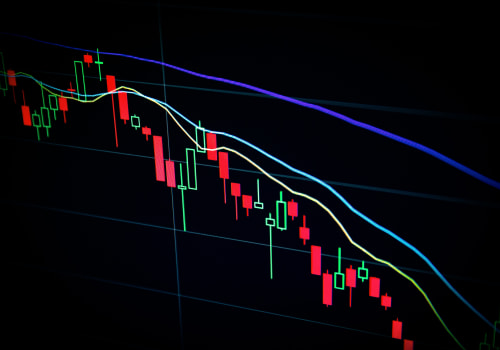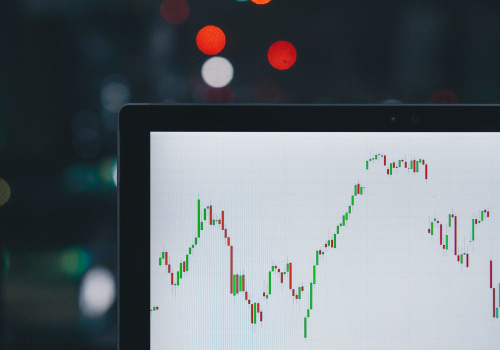For traders, the ability to recognize and avoid emotional traps in trading decisions is an essential part of success. While emotions can certainly play a role in trading decisions, it is important to be aware of the potential pitfalls that come with relying on emotion-based decisions. This article will provide guidance on how to recognize and avoid emotional traps in trading decisions, as well as strategies to maximize success when trading binary options. When trading binary options, it is important to remember that there are both risks and rewards associated with each decision. By understanding the emotional traps associated with trading decisions, it is possible to make better informed decisions and increase the chances of success.
This article will discuss the common emotional traps traders face and how to identify and avoid them.
What are emotional traps?
Emotional traps are the feelings or thoughts that can derail a trader’s decision-making process. They can be caused by fear, greed, overconfidence, or any other emotion that might cause a trader to make a hasty decision. Emotional traps lead to decisions that ignore rationality and go against sound trading principles.How can emotional traps derail your trading decisions?
Emotional traps can result in bad trading decisions by leading traders to ignore proven strategies and risk management principles.Fear and greed are two of the most common emotional traps. Fear can cause traders to avoid taking risks even when the potential reward is greater than the risk, while greed can lead to overtrading and taking on too much risk. Overconfidence can also lead to bad decisions as it can lead to irrational beliefs about the market and a lack of caution.
Examples of emotional traps
An example of an emotional trap is when a trader ignores their own trading plan because they are feeling overly confident in their analysis.This could lead to making irrational trades or taking on too much risk. Another example is when a trader is feeling fearful and decides to close out their positions without giving them time to work out in their favor. These types of decisions often result in losses.
Strategies for recognizing and managing emotional traps when trading
The key to managing emotional traps when trading is recognizing when they are happening.The first step is to practice mindfulness and remain aware of your feelings and thoughts when trading. It is also important to have a written trading plan that outlines your entry and exit points so that you can stay focused on your goals rather than letting emotions take over. Lastly, having an experienced mentor or coach who can provide guidance can be invaluable in helping you stay on track and identify any emotional traps that may be affecting your trading decisions.
Conclusion and summary of the main points.
Emotional traps can be dangerous for traders because they can lead to irrational decisions and losses. The key to avoiding these traps is recognizing them and staying mindful of your thoughts and feelings while trading.Having a written plan that outlines your entry and exit points, as well as having an experienced mentor or coach, can help traders stay focused and make rational trading decisions.
What Are Emotional Traps?
Emotional traps are psychological pitfalls that can lead to bad trading decisions. They are caused by strong emotional reactions that can often override rational thinking and derail traders from their intended strategies. Common emotional traps include fear, greed, and overconfidence. Fear can be an emotional trap when it causes traders to hesitate and miss out on potential opportunities.Greed can cause traders to take on too much risk or make trades without proper consideration for the potential losses. Overconfidence can lead to overtrading, which often leads to losses. It is important to recognize these emotional traps in order to stay on track with trading goals. By understanding and recognizing the emotions that lead to bad trading decisions, a trader can better manage their own emotions and stay focused on their trading strategy.
Examples of Emotional Traps
When trading, it is important to be aware of the potential for emotional traps.These traps often come in the form of fear, greed, impatience, overconfidence, and regret. Fear can manifest as a hesitation to take risks and can lead to missed opportunities. Greed can cause traders to take on too much risk, resulting in excessive losses. Impatience can lead to poor decision-making and rash trading moves.
Overconfidence can lead to a lack of discipline and increased risk taking. Finally, regret can cause traders to make bad decisions in an attempt to “make up” for previous mistakes. These emotional traps can cause traders to make bad decisions that are not in line with their trading plan or strategy. It is important to recognize when these emotions are present and take steps to manage them. Here are a few strategies for managing these emotional traps:
- Stay disciplined and stick to your trading plan.
- Be aware of your feelings and take a break if you feel overwhelmed.
- Try not to rush decisions and take the time to analyze the markets.
- Don’t be afraid to take risks, but always set realistic expectations.
- Don’t dwell on past mistakes – focus on the present.
Strategies for Recognizing and Managing Emotional Traps When Trading
When trading, it is important to recognize emotional traps that can derail your decisions.Fortunately, there are strategies you can use to stay emotionally balanced and avoid these traps. These strategies include setting realistic goals, creating a plan and sticking to it, and taking breaks when needed. Setting realistic goals can help you stay focused on the long-term goal of achieving success in trading. It is easy to become overwhelmed by the short-term losses, but having a clear plan of action will help you stay on track and focused on the bigger picture. Additionally, creating a plan of action and sticking to it can help you stay motivated and achieve success in trading. Finally, it is important to take breaks when needed.
This can help you clear your head and reduce the risk of making irrational decisions due to emotional overwhelm. Taking breaks can also help prevent burnout, which can be a major issue for many traders. By recognizing emotional traps and implementing strategies such as setting realistic goals, creating a plan and sticking to it, and taking breaks when needed, you can stay emotionally balanced and increase your chances of success when trading.
How Can Emotional Traps Derail Your Trading Decisions?
Emotions are a powerful force that can take control of your trading decisions. Traders who lack the ability to recognize and manage their emotions are more likely to make mistakes that can lead to costly losses. Understanding how emotional traps can derail your trading decisions is essential to becoming a successful trader. One of the most common emotional traps is fear.Fear can cause traders to make hasty decisions or freeze up and not make any decisions at all. Fear can also lead to overtrading, as some traders may try to “overcorrect” for previous losses by taking excessive risks in order to make up for them. Another emotion that can have an adverse effect on trading decisions is greed. Greed can lead traders to take on too much risk in hopes of bigger profits or hold on to losing positions for too long in hopes that they will turn around. Greed can also cause traders to overtrade in order to make as much money as possible in a short period of time. The key to managing emotional traps in trading is to recognize when you are feeling emotionally charged and take steps to calm yourself down.
This may involve taking a break from trading, talking to a trusted friend or family member, or engaging in relaxation techniques such as yoga or meditation. It is also important to be aware of your own tendencies and behaviors when it comes to making trading decisions and consciously work on controlling them. By understanding how emotional traps can derail your trading decisions and taking steps to manage them, you will be better equipped to make sound trading decisions and maximize your success with binary options. To sum up, understanding and recognizing emotional traps is key to successful trading. By being aware of our emotions and how they can affect our trading decisions, we can be better prepared to navigate the markets. Examples of emotional traps include overconfidence, fear, impulsiveness, and confirmation bias.
Strategies for recognizing and managing emotional traps include mindfulness, keeping records of decisions, and taking breaks from trading. For those looking to gain a deeper understanding of this topic, further reading is available.






